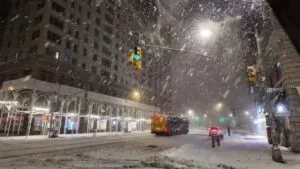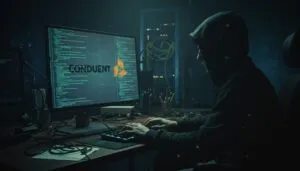During my time living in New York City, I’ve been fascinated by how its laws can feel both protective and perplexing. Squatters’ rights, in particular, have become a hot topic this year.
With housing as tight and valuable as it is, stories of people occupying homes they don’t own—and the legal hurdles property owners face—seem to pop up everywhere.
I did some digging and decided to walk you through what’s happening with squatters’ rights in 2025, what’s at stake, and how it impacts both property owners and tenants.
Table of Contents
ToggleWhat Are Squatters’ Rights?

Essentially, squatters are individuals who occupy a property without legal permission. It might seem straightforward—if they don’t own it, how can they stay?
But the legal system doesn’t always see it that way. In New York State, squatters can claim ownership of property through something called adverse possession.
To pull that off, the squatter’s occupancy must check a few boxes:
- Continuous: They’ve been there for an uninterrupted period (in New York, this typically means 10 years).
- Open and Notorious: Their presence isn’t a secret; they aren’t sneaking in and out.
- Exclusive: They’re the ones using the property, without sharing control.
- Hostile: Their occupation is without the property owner’s permission.
It’s a tough set of criteria, but once met, it can lead to a squatter actually gaining ownership rights.
In urban areas like NYC, though, the dense population and complicated property use mean things rarely play out so neatly.
The Tenant vs. Squatter Line

Here’s where it gets tricky. NYC has tenant protection laws that are among the strongest in the country. Those laws, while great for legitimate renters, can unintentionally shield squatters, too.
How? If someone stays in a property for more than 30 days, they might be considered a tenant—even without a lease or a landlord’s blessing, as per the New York Post.
That’s where things start to get dicey for property owners. Once someone is seen as a tenant, eviction becomes a legal maze. Here’s what property owners have to do to regain control:
- Serve a Notice to Quit: Basically, an official warning that the property owner intends to remove them.
- File a Holdover Proceeding: This is a legal action initiated in housing court.
- Obtain a Judgment of Possession: A court order allowing eviction.
- Carry Out the Eviction: This part requires law enforcement to enforce the removal.
Recent Cases That Have Everyone Talking
Lance White-Hunt sued homeowners Denis Kurlyand and Juliya Fulman for an “illegal lockout,” however the suit was dismissed with prejudice by a judge. https://t.co/4aLkXWTF03 pic.twitter.com/RQHxQwEo37
— ZBreakingNewz (@ZBreakingNewz) May 15, 2024
Let’s talk about two stories that have everyone buzzing. They’re perfect examples of how complicated squatters’ rights can get.
The Queens Homeowner’s Arrest
Imagine inheriting a house, only to find strangers living there. That’s what happened to one Queens homeowner, Adele Andaloro in early 2024, as per ABC7 New York.
When she tried to change the locks and confront the squatters, she found herself in handcuffs instead.
Why? Because the squatters had been there for over 30 days, giving them legal protections. The homeowner’s actions, however well-intentioned, went against the proper legal steps.
The Shake Shack Receipt Case
Here’s one for the books. According to New York Post, two people living in a $930,000 home in Queens, Lance Hunt and Rondie L. Francis, presented a $25 Shake Shack receipt as proof of residency.
Yes, you read that right—a receipt from a fast-food joint. They argued that they’d been paying rent and established tenancy rights. The case put the property owner in an uphill battle, with even a flimsy claim enough to delay eviction.
NYC Laws and Reforms in 2024
With headlines like these, it’s no wonder city officials have been trying to tackle the problem. A couple of key measures have rolled out this year:
Tenant Protection Cabinet
Mayor Eric Adams launched the Tenant Protection Cabinet in March 2024. It’s a group of city agencies working together to improve tenant protections and create fair housing policies.
The hope is to strike a balance between protecting renters and addressing situations where the laws might be misused.
According to the New York City Government, the Tenant Protection Cabinet focuses on the following:
- Coordinating Resources: Ensuring tenants receive consistent information and support, regardless of which city agency they contact.
- Addressing Underutilized Services: Identifying and promoting tenant services that may be underused, connecting New Yorkers with the assistance they need.
- Data-Driven Strategies: Utilizing data to pinpoint areas with the highest need and tracking progress toward improved housing stability for tenants.
Rent Stabilization Extension
In April 2024, New York extended its rent stabilization laws through 2027, as per the New York City Council.
While these laws are primarily aimed at preventing rent spikes, they also influence cases involving squatters and unauthorized occupants, making it an even more intricate legal landscape for property owners.
What Can Property Owners Do to Protect Themselves?

For property owners, prevention is key. Squatting may seem like a random occurrence, but there are steps you can take to make your property less of a target:
- Frequent Inspections: Checking in on vacant properties regularly is one of the best deterrents.
- Secure the Property: Solid locks, security systems, and cameras can go a long way in keeping unwanted visitors out.
- Post “No Trespassing” Signs: While they might not stop a determined squatter, these signs can strengthen your case if legal action becomes necessary.
- Hire Legal Experts Early: If you suspect someone is squatting, consult a lawyer before taking matters into your own hands.
My Take On These Laws & Rights
Squatters’ rights spark heated debates for a reason. On one hand, tenant protections are vital in a city like New York, where affordable housing is scarce. On the other, property owners have the right to control what’s theirs.
Finding the middle ground is no easy task. What really stands out to me, though, is how much this boils down to the legal system needing clarity.
Wrapping It All Up
Squatters’ rights in NYC in 2025 tell a complicated story of housing, law, and human nature. If you’re a tenant, a homeowner, or just someone who finds these cases fascinating, it’s a topic that makes you think about fairness and the fine print.
For property owners, the takeaway is simple: stay vigilant and stay informed. For renters, it’s a reminder of how valuable tenant protections can be when used appropriately.
And for everyone else, it’s just another chapter in the endlessly complicated tale of life in the Big Apple.
References
- nypost.com – NYC squatters are cashing in on legal loopholes and crowded courts to take over homes — and good luck getting them out
- abc7ny.com – Squatter standoff captured on camera in Queens
- nypost.com – Alleged squatters serve up $25 Shake Shack receipt to claim $930K NYC home is legally theirs
- nyc.gov – Tenant Protection Laws
- council.nyc.gov – New York City Council Votes to Declare Continuing Housing Emergency to Maintain Rent Stabilization Laws
Related Posts:
- 25 Most Dangerous Cities in US - Updated Statistics for 2026
- Safest Countries in the World in 2025 - GPI…
- Capital Cities in Europe: Top Destinations For You…
- America's Murder Capitals: A 2026 Ranking of the…
- 13 Richest Cities in the US 2025 - Luxury, Money,…
- 13 Most Dangerous Neighborhoods in New York 2025 -…







